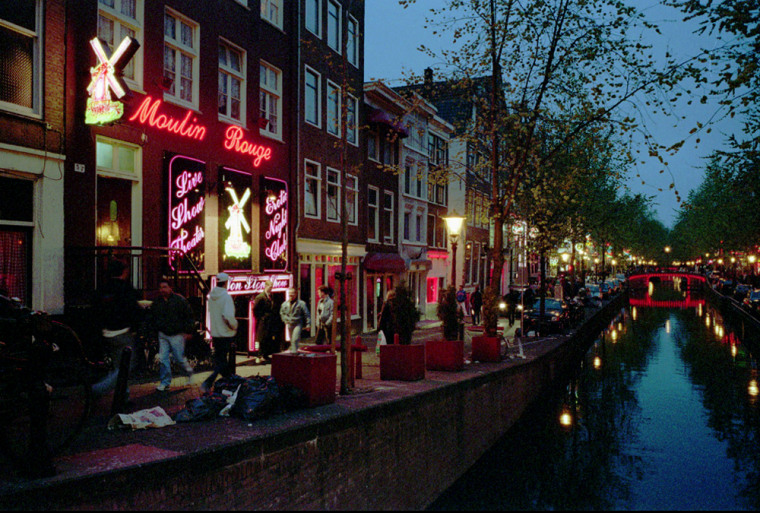A non-profit corporation has purchased a large number of the buildings where prostitutes pose in windows in Amsterdam’s Red Light District, the city said Thursday, in a deal that may lead to a third of the windows being shuttered.
The move is intended to break a logjam in an multi-year effort by the city to cut back on the windows, which it says are a magnet for crime and money laundering.
Mayor Job Cohen said the move was not intended to get rid of prostitution entirely, since it is part of the area’s history and a major tourist draw for the city.
“What we do want is to get rid of the underlying criminality,” Cohen told local television station AT5.
With its scantily clad prostitutes posing in brothel windows and coffee shops oozing the pungent aroma of cannabis smoke, the Red Light district’s seediness has always been part of its attraction.
Prostitution is legal in the Netherlands, and coffee shops are licensed to sell small amounts of marijuana. But the district is a magnet for petty criminals and, authorities believe, human traffickers, drug lords and mobsters — who take advantage of the situation to launder money.
Prostitutes’ rights organizations have generally been indifferent to the crackdown, arguing that pimps are the main source of problems, not landlords.
In Thursday’s deal, public housing corporation NV Stadsgoed purchased 18 buildings with 51 windows for $35 million. That is around a third of the windows in the Red Light District, though there are other prostitution zones in the city.
NV Stadsgoed will redevelop some or all of the buildings, and because they are not likely to be worth as much as housing or regular commercial real estate, the city has agreed to reimburse the corporation by up to $21 million.
“We don’t know yet what’s going to come in their place,” Cohen said. “We’re very busy making a development plan, and we hope to have that ready by the end of the year.”
Amsterdam has been conducting a crackdown on criminal activity in the city center for nearly five years, using a 2002 law that forces business operators to disclose detailed accounting in order to have their licenses renewed.
The seller in Thursday’s deal, “Fat” Charlie Geerts, was ordered by the city last year to close the windows because the city said he failed to meet standards.
But he filed a legal protest and Amsterdam’s District Court granted an injunction against closures while he fought the decision.
